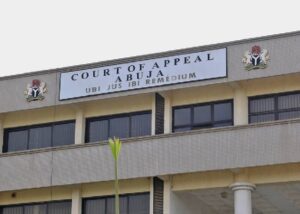


Corruption, Nigeria’s long-standing problem – Ex- Kano Govt aide
By Dennis Udoma, Uyo
A former political aide to the Kano State Government Dr. Asikpo Essien Iboko had lamented that Nigeria has practiced all forms of corruption since independence, describing it as a deceitful and immoral behavior that has impacted various sectors of the economy.
Speaking as a guest lecturer at a public lecture organized by the Faculty of Management Sciences, University of Uyo, Dr. Asikpo attributed the causes of corruption to weak governance, lack of transparency, political influence, and cultural norms, among others.
“Corruption in Nigeria has revealed a cancerous spread which the country refused to treat at its early stages of development, now becoming more pervasive and complex than public service corruption,” Dr. Asikpo said.
He recommended structural rigidity, poverty alleviation, employment opportunities, and addressing educational needs to address the problem of corruption in the country.
Chairman of the occasion, Prof. Trenchard Ibia, described corruption as “misuse, abuse or misapplication of position, privilege for personal gain,” while the Dean, Faculty of Management Sciences, Professor Uduak Ibom, described it as “a serious and dreadful disease, virus and epidemic” that has ravaged many African countries, including Nigeria.
The Vice-Chancellor of the University of Uyo, Prof. Nyaudoh Ndaeyo, represented by DVC, Administration, Prof. Anthonia Essien, commended the Dean, Faculty of Management Sciences, for organizing the public lecture, saying, “There is nothing that can embarrass a nation like corruption, and this lecture is a call to every Nigerian to stop corruption.”
Dr. Asikpo’s lecture is a call to action for Nigerians to address the long-standing problem of corruption that has hindered the country’s development. As he aptly put it, “The liberation of national development in Nigeria from the shackles of endemic and systemic corruption rests on the radical reconstruction of our decadent socioeconomic and sociopolitical systems that breed corruption.”



